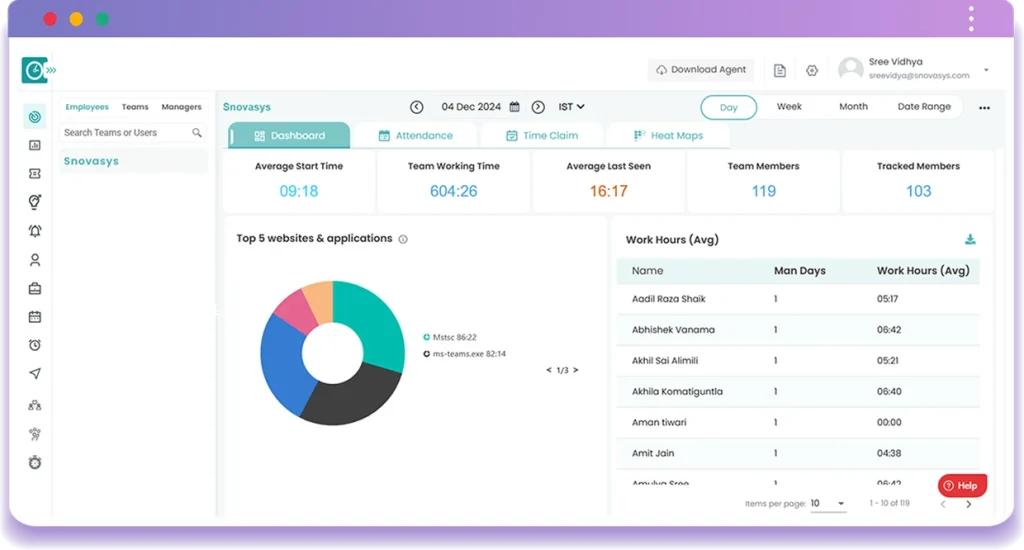The average salary in Japan is around 6,200,000 JPY (39551.16 USD) annually, but what does this figure mean for living standards and financial stability? Without proper context, it can be challenging to gauge how this salary translates into day-to-day living, financial planning, and long-term stability in Japan. This article will help you understand what this salary means and provide a glimpse into Japan’s economic outlook.
What is the Average salary in Japan?
Average Salary in Japan
In 2024, the average salary in Japan is approximately 6,200,000 JPY (39551.16 USD) annually, which equals about 516,000 JPY (3285.30 USD) per month. This figure represents the average amount of earnings for all industries and at different levels of experience. Salaries in the country depend on occupation type, and company size among many more economic factors.
Median Salary in Japan
The median salary in Japan is 472,000 JPY (30109.91 USD). This reflects the average level of wages with half earnings below and half earnings above the said amount. It gives a better view of typical wages rather than the average, as very high or low salaries influence average figures.
Minimum Wage in Japan
The Central Minimum Wage Council’s subcommittee proposed a significant increase in Japan’s national minimum wage guideline for fiscal 2024. The new guideline raises the average hourly wage to 1,054 JPY, an increase of 50 JPY, from the current 1,004 JPY, marking the largest hike ever. This adjustment is part of Japan’s 22nd consecutive annual increase, driven by inflation, rising living costs, and a historically high wage increase rate of 5.1% during recent labour-management negotiations.
The new minimum wage was implemented by October 2024, while regional councils finalized exact rates. This increase may help up to 20% of workers, which could stimulate consumption and contribute to growth in the economy. In any case, Japan’s minimum wage is still much lower than in other major economies such as the U.S., Germany, and the U.K.
Key Factors Influencing Salaries in Japan
Understanding the determinants of wages in Japan will help people decide their career choices and personal finances. All these include experience, education, location, and industry. The key factors determining salary expectations are as follows, looking into different sectors.
1. By Experience
Experience is one of the most important factors affecting salary growth in Japan. As earning ability increases with experience for a professional. Here are salary trends for years of experience.
| Experience Level | Salary Increase (%) |
|---|---|
| Less than 2 years | Starting Salary |
| 2-5 years | 32% Higher Than 0-2 years |
| 5-10 years | 36% Higher Than 0-5 years |
| 10-15 years | 21% Higher Than 0-10 years |
| 15-20 years | 14% Higher Than 0-15 years |
| Above 20 years | 9% Higher Than 0-20 years |
Source: SalaryExplorer
Curious about earnings in Poland?
Check out our latest blog on the average salary in Poland for key insights and trends
Explore Now2. By Education
Educational background can also determine the salary levels in Japan. Higher education translates to better-earning potential. People who have higher educational qualifications tend to earn higher. The salary variations with respect to the education level are as follows.
| Education Level | Salary Increase (%) |
|---|---|
| High School | +7% |
| College or Diploma | +17% |
| Bachelor’s Degree | +24% |
| Master’s Degree | +29% |
| Ph.D. | +23% |
Source: Salary Explorer
Note: The industry average is not necessarily the direct indication of each role’s salary.
3. By City
The city you work and live in determines a big part of your salary; major metropolitan cities are mostly paid more than the smaller ones. Here are the average salaries in different Japanese cities.
| City | Average Annual Salary (JPY) |
|---|---|
| Fukuoka | 5,400,294 |
| Hiroshima | 5,205,976 |
| Kagoshima | 5,104,964 |
| Kobe | 6,202,923 |
| Kyoto | 5,371,271 |
| Nagoya | 5,610,128 |
| Osaka | 6,815,167 |
| Nagasaki | 5,050,898 |
| Sapporo | 5,647,855 |
| Sendai | 5,281,077 |
| Tokyo | 7,438,855 |
| Yokohama | 6,448,197 |
Source: Salary Explorer
4. By Industry
Various industries pay differently depending on some providing relatively higher amounts of pay compared to others. The following are the average wages of different occupation categories in Japan.
| Industry | Average Annual Salary (JPY) |
|---|---|
| Academic/ Education | 5.44 million |
| Accommodation/ Food Service | 2.68 million |
| Agriculture/ Forestry | 3.37 million |
| Complex Service Business | 5.06 million |
| Construction | 5.29 million |
| Electricity/ Heat/ Water | 7.47 million |
| Finance/ Insurance | 6.56 million |
| Information/ Communication | 6.32 million |
| Manufacturing | 5.33 million |
| Medical/ Welfare | 4.09 million |
| Real Estate | 4.57 million |
| Service | 3.77 million |
| Transportation | 4.77 million |
| Wholesale/ Trade | 3.84 million |
Source: GaijinPot.com
5. By Gender
The gender pay gap persists in Japan, which in 2024 had a score of 0.66 on the gender gap index. That is a ranking of 118 out of 146 countries and places Japan at the lowest in G7 countries. Even though the education and health gender gap are almost closed, economic participation and political empowerment remain issues.
The disparities are also caused due to cultural factors, one of which is traditional and patriarchal gender roles together with male favouritism in general. Women have very few managerial positions and still fewer parliamentary roles. To counter these issues, it has set a target of adding women to 30% of political, judiciary, and economic sectors across the country by 2025.
What are the Highest and Lowest-paying Jobs in Japan?
Salaries in Japan are different from one job to another. Some jobs have a very high salary based on specific skills or years of experience, while others have relatively low wages. It will be easier to make career choices if you know which jobs are the highest and lowest paid. Let’s take a look at the top and bottom earners in the job market.
Highest Paying Jobs in Japan
| Job Title | Average Annual Salary (JPY) |
|---|---|
| Doctor (Medical/Chemical/Food) | 10.89 million |
| Analyst (Financial Professional) | 9.11 million |
| Investment (Fund Manager/Dealer) | 8.73 million |
| Lawyers (Consulting Firms/Professional Firms/Auditing Firms) | 8.38 million |
| Investment Banking (Financial Professional) | 8.23 million |
| MR (Sales) | 7.64 million |
| Strategy/Management Consultant Professional (Consulting Firm/Professional Office/Auditing Firm) | 7.51 million |
| Internal Audit (Planning/Management) | 7.42 million |
| Financial Product Development (Financial Professional) | 7.34 million |
| Risk Consultant Professional (Consulting Firm/Professional Office/Auditing Firm) | 7.32 million |
Source: Doda
Lowest Paying Jobs in Japan
| Job Title | Average Annual Salary (JPY) |
|---|---|
| Research and Development Technology (IT/Communications) | 5.76 million |
| Formulation Research technology (Medical/Chemical/Food) | 5.66 million |
| Circuit/System Design Technology (Electrical/Electronic/Mechanical) | 5.65 million |
| Clinical Development/ Clinical Trial Technology (Medical/Chemical/Food) | 5.63 million |
| Design (Plant) Technology (Architecture/Civil Engineering) | 5.62 million |
| Data Scientist Technology (IT/Communications) | 5.56 million |
| Technology Development/Construction Method Development (Architecture/Civil Engineering) Technology (Architecture/Civil Engineering) | 5.48 million |
| Marketing Planning/Management | 5.41 million |
| Merchandiser Sales/Service | 5.37 million |
| Accounting Planning/Administration | 5.33 million |
Source: Doda
Did You Know?
Employees in Japan's automotive industry can often recieve the highest bonuses, with some earning up to six month's pay!
What is the Cost of Living in Japan?
The cost of living in Japan varies based on location, lifestyle, and household size. Below is an overview of average monthly expenses for individuals and families:
| Expense Category | Single Person (JPY) | Family of Four (JPY) |
|---|---|---|
| Housing (Rent) | 50,000 – 70,000 | 100,000 – 150,000 |
| Utilities | 13,045 | 26,090 |
| Food and Groceries | 41,009 | 82,018 |
| Transportation | 22,665 | 45,330 |
| Health Insurance | 20,000 | 40,000 |
| Miscellaneous Expenses | 30,000 | 60,000 |
| Total | 166,773 | 363,593 |
Source: Numbeo
What is the Current Economic Outlook of Japan?
-
Japan’s real GDP is expected to rise around 0.3% in 2024 after the pace slowed from last year. This slowdown was caused by temporary supply disruptions in the automotive sector and fading influences of factors that helped to boost activity in 2023, including a pickup in tourism.
-
Inflation continues to pose a major threat, as the Bank of Japan (BOJ) maintains the short-term policy interest rate at 0.25% to provide for a stable economy. At its final monetary policy meeting for the year 2024, the BOJ had apprehensions about the global economy’s growth and how sustainable Japanese wage-driven inflation could prove to be.
-
Even with rising prices, strong wage growth and a stronger yen have increased household spending power, boosting demand. However, ongoing inflation makes it harder to keep this growth going.
-
Japan is being subjected to global challenges including high-rolling energy prices, ongoing geopolitical tensions in the East Asia regions, and demand moderation for its major trading partners–China and the U.S. Fluctuation exchange rates also affect trade and inflation for stronger policies to enhance resilience.
Struggling with outsourced team management?
Let Time Champ help you track, organize, and optimize workflows. Try it today!
Sign Up for FreeBook DemoDid You Know?
Japan's inflation rate hit 2.9% in 2024,the highest since October 2023.
Should You Consider Outsourcing to Japan?
Outsourcing to Japan will be a good idea in terms of a highly competent workforce, high technology and reliable infrastructure. Before considering this, there are certain key factors that you should have in mind:
1. Quality and Reliability
Japanese emphasize “kaizen” which means continuous improvement in order to have the consistency of quality and efficiency of the outsourced projects. Businesses can rely on Japanese partners for precision, adherence to deadlines, and top-notch outcomes, which is particularly important for industries with high standards.
2. Cultural Alignment and Challenges
Japan’s business culture supports hierarchy, punctuality, and professionalism, which is ideal for long-term partnerships. However, the business should be aware of the rules of the land to avoid communication barriers and possible delays in the operation.
3. Global Rankings
Japan ranks at the top of the 10 innovation and competitiveness indexes globally, particularly on technological and manufacturing fronts. Known for high standard infrastructure, this is coupled with a strong skilled workforce to make the destination ideal for outsourcing, especially with Japan delivering high-class service and sure international partnership.
Outsourcing to Japan is very suitable for quality services, state-of-the-art technology, and talent. The high costs as well as the cultural complexities may make things a little complicated, but the reliability and experience from Japanese industries can help increase business effectiveness.
How Can Time Champ Improve Outsourcing Efficiency?
Outsourcing offers flexibility and cost savings, but managing remote teams can be challenging. Time Champ simplifies this with tools to track attendance, monitor productivity, and streamline workflows. Here’s how it makes outsourcing more efficient.

1. Increases Productivity Insights
Time Champ provides the most powerful reporting tools for employee performance and productivity. Managers can easily trace time spent on particular tasks, identify bottlenecks, and pinpoint trends. This helps in making informed data-driven decisions and enhancing outsourcing overall performance and productivity.
2. Simplifies Task Allocation
The platform provides visibility into team availability, work hours, and the completion status of the task. As a result, managers can directly assign tasks to outsourced employees based on their capacity and performance with better resource management, as well as avoid task overload or delay.
3. Enhances Attendance Tracking
Time Champ ensures accurate and real-time attendance tracking for remote teams. Automated check-in, accurate work-hour recording, and leave management features allow managers to track the availability of outsourced employees with ease. These save the extra paper work, lower human error, and guarantee accountability and reliability throughout the team.
Through these features, Time Champ makes it possible for businesses to achieve and sustain transparency, increase the efficiency of the organization, and achieve the desired results of outsourced projects.
Streamline outsourcing with Time Champ!
Drive efficiency and unlock global potential today.
Sign Up for FreeBook DemoConclusion
Japan is one of the prime economies, with a strong belief in innovation and a very talented labour force. The country has withstood such challenges as global uncertainty and economic change while still holding its position at the top of the world. Its emphasis on quality and reliability, coupled with advancements in technology, provides ample growth and opportunity. From career goals to business ambitions, Japan remains a place of promise and dependability.
Frequently Asked Questions
A good salary in Japan is one that comfortably covers monthly living expenses. Living costs without rent range from JPY 150,000 to JPY 200,000 a month on average. The monthly salary must exceed JPY 350,000 to provide enough money for a comfortable life with a lot of savings for other activities.
The living cost in Japan is rising. Increasing inflation, utility and housing costs, and increases in food and transportation also have contributed to the rise. The Consumer Price Index continued to rise as a consequence of these changes, with the effect being to necessitate an increase in wages and support for household spending.
The national minimum wage in Japan is 1,004 JPY per hour. However, the regional difference is quite high. For instance, Tokyo has a minimum wage of 1,163 JPY per hour, because it is an expensive city with high living costs and economic activity. The rates are reviewed annually and increase gradually with inflation and economic conditions.







